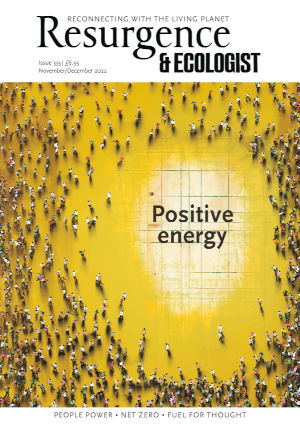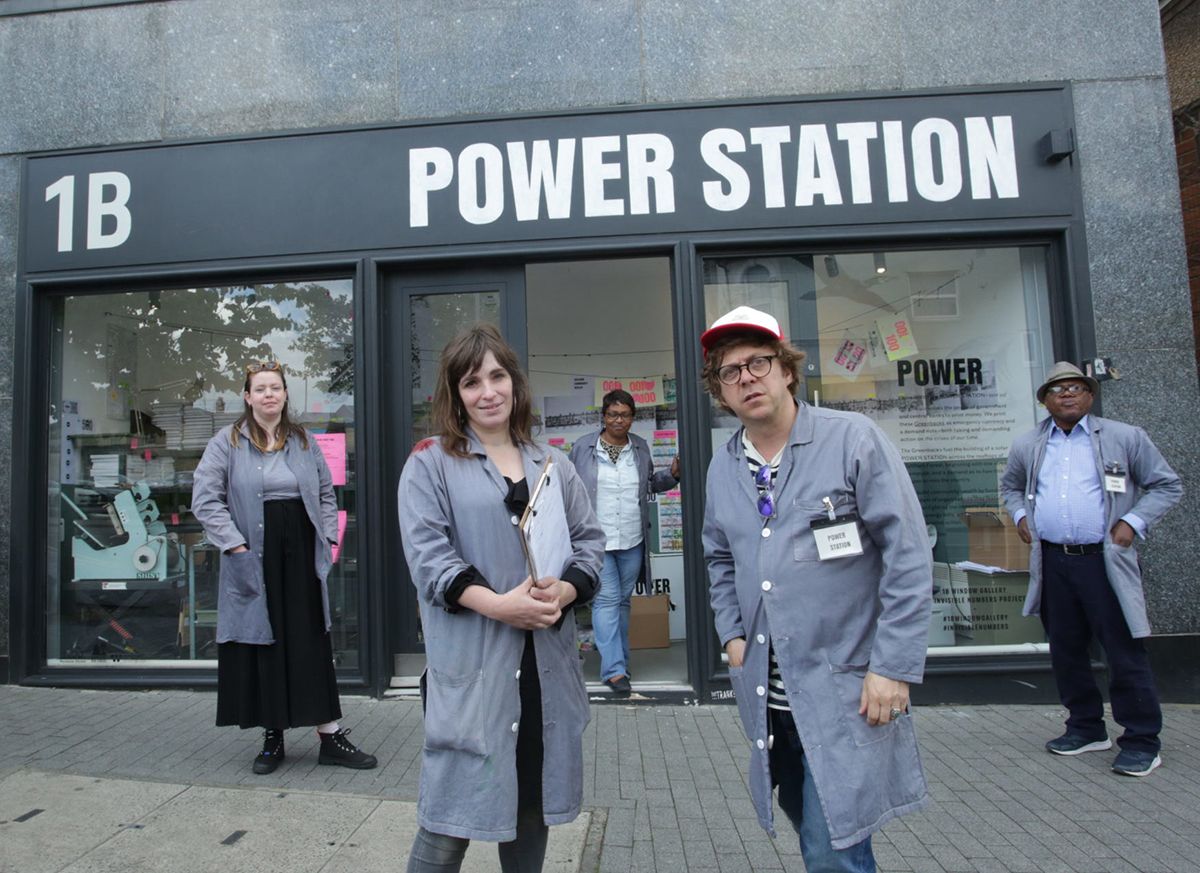Artists Hilary Powell and Dan Edelstyn are doing something extraordinary. While the energy price cap rises ever higher and the climate crisis worsens, they are creating what they call a “Grassroots Green New Deal in action”. The project, titled POWER, will build a solar power station along the rooftops of their Victorian terraced street in Waltham Forest, England, and fund seven local community organisations working for a just transition. “We believe we can become a zero-carbon street,” film-maker Edelstyn says in the introductory video to their project. “And the street will be an example of what the government could and should be doing right now across the UK.”
To fund it, they are printing their own money. This is something they’ve done before. In Bank Job in 2018, a project that raised thousands of pounds for local organisations, they bought up and (literally) exploded £1.2 million of debt. Bank Job underlined how the financial and ecological crises are intertwined, which is why POWER is tackling both at once. No one has yet managed to retrofit solar panels and insulate an existing street regardless of people’s ability to pay. POWER aims to be a ‘show and do’ project, demonstrating what can happen when a community comes together.
POWER aims to raise £1 million from direct sales of the printed money (known as ‘Greenbacks’) and from a membership scheme. The 1860s US Greenbacks were a form of sovereign money creation; the Greenbacks in POWER have a ‘solar punk’ aesthetic, celebrating the people, history and place of Waltham Forest, directly relating to the local organisations being supported by their sale. By coming together, the organisations are supporting each other. Printmaker Powell tells me: “I like to think of them as an ecosystem,” increasing their reach and effectiveness.
The Greenbacks were printed at an electricity substation, in an act of “public making” by local people trained up in each print process and paid at the London Living Wage. “It’s about having those conversations … and that tactile element really helps with that, because we’re talking about big concepts – money, economy, climate – and they can be overwhelming,” says Powell. “But when you’re there, just covered in ink, it helps those more transformative meetings or conversations happen.”
The fast-growing POWER membership scheme is providing the knowledge and tools for members to decarbonise their own streets and lives. When politicians fail, it takes artists to have the vision to find a way forward. But Powell adds: “It’s not about preaching or being a passionate orator. It’s about showing things in action and getting the momentum going so that people believe that they can make a difference too.”
www.power.film
Solar Streets
POWER offers a free membership scheme providing weekly updates on the project, with lots of videos, including free access to view the film Bank Job, which shows how this artist vision works.
The paid membership scheme provides workshops, links and tools to decarbonise your own street, plus some of the Greenbacks. You can also buy greenbacks directly to support the project.
solarforschools.co.uk gives the information and support to turn your school into a solar power station.
Dan Edelstyn’s book Mini Movies to Millions shows how their method works: tinyurl.com/mini-movies-book
The projects supported by POWER are Project Zero Youth Project, OrganicLea food-growing co-op, HEET energy efficiency action, Eat or Heat Foodbank, PL84U-AL SUFFA, Stories and Supper, Coppermill Swifts children’s football club, Barn Croft Primary School (also going solar), and Waltham Forest Migrant Action.








